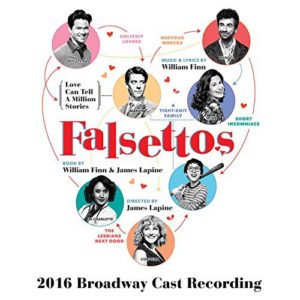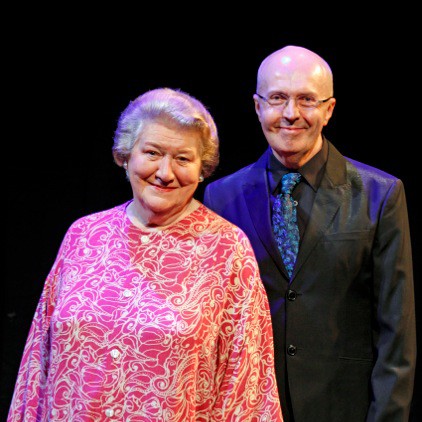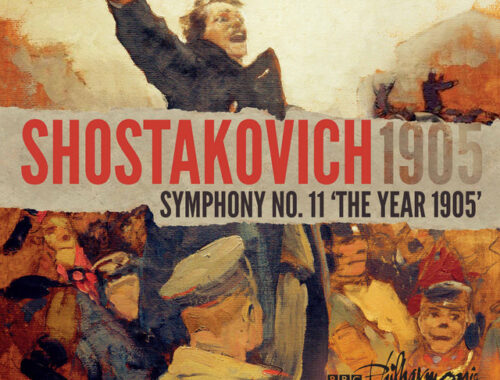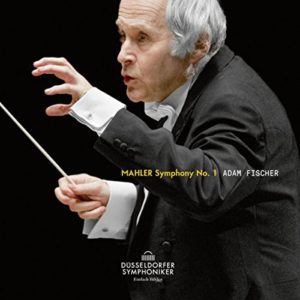GRAMOPHONE Review: Falsettos – 2016 Broadway Cast Recording/Finn
 The two parts of William Finn and James Lapine’s brilliant urban opera Falsettos first came together in 1992 when the horrendous human cost of the AIDS epidemic was still incalculable. But March of the Falsettos (1981) and Falsettoland (1990) were each born in the thick of this terrible scourge and each independently served as a shared experience for those who were living or had lived through it. I remember sitting in a Broadway theatre back in 1992 and the emotional involvement of that audience – most of whom will have suffered loss directly or indirectly – was palpable.
The two parts of William Finn and James Lapine’s brilliant urban opera Falsettos first came together in 1992 when the horrendous human cost of the AIDS epidemic was still incalculable. But March of the Falsettos (1981) and Falsettoland (1990) were each born in the thick of this terrible scourge and each independently served as a shared experience for those who were living or had lived through it. I remember sitting in a Broadway theatre back in 1992 and the emotional involvement of that audience – most of whom will have suffered loss directly or indirectly – was palpable.
Falsettos is now iconic, and undoubtedly William Finn’s masterpiece, something he is unlikely to surpass – but what is really startling listening now to this revival from 2016 is how fresh and prescient the piece still sounds, how the jokes still land and the heartache is still raw. The tone – certainly that of part one, March of the Falsettos – is edgy and satirical. Let’s face it, any show which kicks off with the nervy counterpoint of a number entitled “Four Jews in a Room Bitching” isn’t about to pull its punches.
There’s a lot in this creative pot: the four Jews: Marvin, married to Trina with a son Jason on the brink of his Bar Mitzvah; Whizzer, Marvin’s gay lover; and Mendel, Marvin’s psychiatrist who is now having an affair with Trina, Marvin’s wife. Ok? Oh, and let’s not forget the lesbians from next door. And as if these permutations and their ramifications weren’t complicated enough, the AIDS epidemic – “Something Bad is Happening” – arrives in part two.
This is, in the broadest sense, an intimate epic in which the frictions and agitations of act one – delivered as they are at the speed of light in a sequence of sung-through scenes-cum-songs as scabrously funny as they are insidiously catchy – find repose and reflection in the heartbreak of act two. It has, if you like, an air of Finn as a Brecht/Weill figure for the late 20th century with his “Teeny Tiny Band” as much a reference to his and Lapine’s characters as his four-piece combo – keyboards, reeds, percussion – retaining (in Michael Starobin’s orchestrations) a keen sense of period.
I love that the highly strung wife Trina has a number called “I’m Breaking Down” (well and truly nailed by Stephanie J Block) and that the line “the only thing that’s breaking up is my family” is so obvious that you almost don’t think of it. I love that the bond of father and son at the close of act one is mirrored by the bond between that same son and father’s lover in act two. These were bold ideas back in 1981 and 1990 – they still are. As is the ravishing song “Unlikely Lovers” where the male and female couples in our tale find such consoling kinship.
You can hear why this musical is so beloved. Marvin’s love song for Whizzer “What More Can I Say?” – affectingly sung by Christian Borle – is one of the most beautiful contemporary theatre songs I know whilst the climactic duet for Borle and Andrew Rannells – “What Would I Do?” – is heartbreaking but also super-uplifting. It does for me every time I hear it. Truly an eleven o’clock number with a timeless reach.
Jason’s Bar Mitzvah eventually takes place in his father’s lover Whizzer’s hospital room – and everyone in Finn and Lapine’s Teeny Tiny Band is there. The implications and symbolism of that could hardly be more overwhelming both in and beyond the context of this show. To quote its final line: “Lovers come and lovers go/ Lovers live and die fortissimo/This is where we take a stand/ Welcome to Falsettoland.”
You May Also Like

DAME PATRICIA ROUTLEDGE: Facing The Music – A Life in Musical Theatre
06/03/2024
GRAMOPHONE: From Where I Sit – August 2020
16/09/2020

